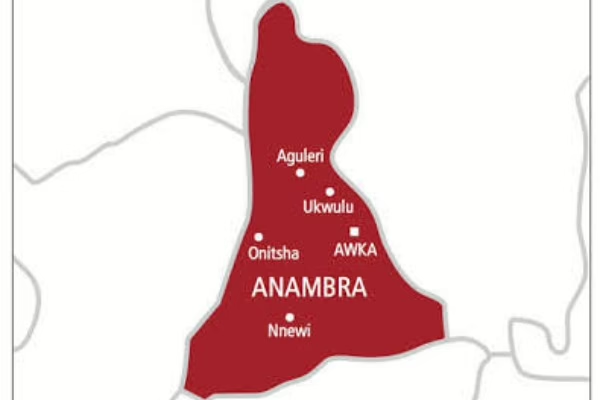Corruption is multifaceted, hydra-headed and multidimensional in nature, modicum and structure. That is why it appears in various discussions, places, activities and actions. Whenever corruption is mentioned, the tendency is to attach it to stealing, mismanagement of funds and embezzlement. Everything seems to revolve around money and money matters. But corruption is more than that just as the outcomes of corrupt practices have far-reaching implications than loss of funds. It can also lead to the loss of a good family name; loss of collective image of people or a nation in terms of perception by other people; loss of better future opportunities; and regrettably, loss of lives. Corruption actually kills.
On family names, there are people or families that when we hear their names or notice their presence in holding public office and everybody keeps vigil over the budget attached to such office. In many climes, such names would never appear again in public representation or participation but not in Nigeria where embezzlers walk tall in public, are voted to represent people in a well-conducted election, are given prominent religious chieftaincy titles and can easily be cleared by National Assembly to manage the national treasury. Ours is a nation of some absurdity.
It is no news that Nigerian travellers are specially treated at airports around the world, not for good reason but for the bad perceptions that corruption has foisted on every Nigerian. The black colour and green passport are a combination that elicits suspicion at the airports or land borders. I did suffer such humiliation at an airport until I shouted at the immigration officer to let me know why I was being delayed while other passengers were moving on. Without offering a word, he just signaled that I should also move on. Not an apology.
Knowingly or unknowingly, many innocent people have lost opportunities to showcase their skills and talents through holding important positions in the local and international arena, particularly the latter, due to family or collective corruption activities of the past. Many Nigerians holding important positions abroad are those who have lived there or within the environment, for most of their lives and have been studied and found to have purged themselves of the corruptive genes that are assumed to characterise every Nigerian: An assumption that is not true of all Nigerians. But regrettably, Nigerians also generalise that there is no honest Nigerian despite finding some very poor Nigerians returning huge sums of money found in hotel rooms or forgotten in taxis. Even so, some civil/public servants are honest in the midst of the rot in that sector.
The disturbing aspect of corruption is that it is not limited to individuals. Even the government as a public institution is deeply involved. For example, housing scheme contributions have been deducted by the government from many civil and public servants’ salaries for many years. A lot of the civil servants have retired and their files closed without land or house allocation. That is corruption.
The government introduced a contributory pension scheme where staff and employees contribute to the fund. We have found that some governments are deducting staff contributions without forwarding the same to the pension fund administrators and not contributing their quota. In advanced fraud cases, the monies so contributed are borrowed by the government by fiat! A programme that is operating creditably well in other countries, including Ghana, is already facing serious credibility problems in Nigeria. That is also corruption.
There are authentic reports that some governors give cover to illegal mining activities going on within their states. Indications are that many incidents of insecurity being witnessed in many northern states arise from the displacement of people to promote such illegal mining. The governors collect security votes from public covers but promote insecurity. Unfortunately, citizens do not ask their governors what they have done with the security fund. It has always been a major source of corruption as no accountability is required.
The foregoing takes us to the issue of fake drugs, fake drinks and other fake products being produced by Nigerians for Nigerians. In the last two weeks, we witnessed how security agencies assisted the National Agency for Food and Drug Administration and Control, and the National Drug Law Enforcement Agency bust rings of production of fake drugs and fake drinks in Lagos and Onitsha. People caught in these businesses can rightly be charged with both murder and economic sabotage. The foundation for such an act is corruption; the ‘must be rich’ syndrome.
The present economic hardships have made Nigerians to prioritise food and medicine in their scale of preference or arrangement of spending. The fraudsters have also chosen these items as their areas of operation. The video of the environment being used for fake drinks clearly shows that the producers were more concerned about making money, even if it would involve the death of their customers or their victims. This implies that countless consumers of the products have died without detecting their loved ones knowing where their deaths came from. That is why they are guilty of merchandising death.
Manufacturing fake drugs is akin to manufacturing death itself. So, without question, anyone caught producing fake drugs should be arraigned for murder. Unfortunately, those who put us in this hardship don’t consume local drugs. They have enough money to travel abroad for healthcare or import their drugs. Presumably, the very poor Nigerians have shifted to herbal medicine long ago. My discussion with a friend, whose one of his siblings is involved in selling local herbs, heartily informed me of the improved prosperity of the lady due to higher patronage of her products. Thus, Nigerians in the poverty trap would have escaped from the nefarious activities of the fake drug producers since they have shifted to herbal medicine. We are now left with the middle class or the upper lower class, as the middle class does not exist in Nigeria presently; and the poor in the hands of murderer’s tagged producers.
How these people escape the prism of the NDLEA, NAFDAC and Standards Organisation of Nigeria all these years can be traced to corruption. They have been in the business for long and some important people might have lost their lives or gotten into medical complications to warrant the attention of the agencies. The civil society organisations are also involved in the whole cover-up. That is what corruption does. People compromise until they are deeply and negatively affected.
The implications of corruption in the production of fake products, as explained in the foregoing, are multifarious. The economic implications, which is my concern here, are the loss of businesses and patronage, loss of jobs and livelihoods, loss of revenue by the government and underdevelopment. That is why the arrested culprits must be charged with economic sabotage.
The cheapness of fake products attracts customers to sellers of such products and away from genuine producers. The degree of loss of customers and persistence can lead to the closure of the industries. Possibly, that is part of the reason some foreign industries are moving out of the country. Local businesses will struggle to exist for some time and may eventually collapse while new ones will fail to enter the market. Given the huge positive impacts industrial growth can bring to a country in terms of employment, income generation and tax revenue, the country loses out greatly from the activities of these fake product producers. There is the need to commission a study on this subject matter given the huge size of the fake businesses recently caught in just two locations in the country.
Fighting corruption in Nigeria requires all hands on deck, not just from the point of view of fund embezzlement but from all aspects of life. The traditional institutions and even the religious institutions that can be engaged for moral enlightenment on the hazards of corruption are neck-deep in this act of infamy. In recent times, I have not seen a church service or Jumah service where the preaching is centred around punishment for moral decadence, particularly in the areas of fake drugs, drug addiction, promiscuity and adultery, corruption etc. It is all about affluence through and by any means. Where do we turn to? Of course, to the government. Offenders should be punished adequately and appropriately for offences committed to serve as deterrent to potential offenders. But who is going to arrest the government on fake housing scheme, pension fraud, illegal mining, et cetera?











